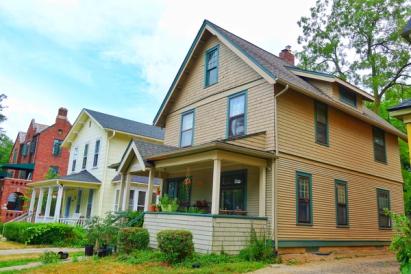Solid Mortgage Advice for the First Time Home Buyer
Written by:
Mike Tassone
Mike is a Co-Founder and Chief Operating Officer of Own Up. He has expertise in all areas of residential lending, having led operations for a top 40 lender in the United States.
See full bio
Fact Checked by:
Patrick Boyaggi
Patrick Boyaggi
CEO an Co-Founder
Patrick is the Co-Founder and CEO of Own Up. He has a wealth of experience and knowledge as a mortgage executive.
See full bio

Ready for Homeownership?
Purchasing a home is a significant life decision that comes with a plethora of financial considerations, including securing a mortgage.
For first-time homebuyers, the mortgage process can be complex, overwhelming, and intimidating. Let's take a look at some valuable mortgage advice to help make the process less daunting.
Get Your Finances in Order
Buying a home is an exciting milestone, but it's important to be prepared for the financial responsibilities that come with it. One of the first steps to take as a first-time homebuyer is to get your finances in order.
This means taking a close look at your credit score, income, expenses, and other financial obligations to ensure that you're in a good position to take on a mortgage.
Credit Scores
A good credit score is essential when it comes to applying for a mortgage. Lenders use your credit score to determine your risk as a borrower and to set your interest rate. Make sure your credit score is in good shape by paying your bills on time, keeping your credit card balances low, and disputing any errors on your credit report.
Down Payment
In addition to your credit score, you'll need to save up for a down payment and be prepared to pay for closing costs and other fees associated with buying a home. While there are some mortgage options that allow for lower down payments, having a larger down payment can help you secure a better interest rate and lower monthly payments.
Other Expenses
It's also important to factor in other costs, such as property taxes, homeowner's insurance, and maintenance expenses, when determining your overall budget for homeownership.
Shop Around for the Right Loan
The sheer number of loan options available can be overwhelming, so it's important to do your research. Start by identifying your specific needs and financial situation to help narrow down your choices.
There are a variety of mortgage loans available, including fixed-rate mortgages, adjustable-rate mortgages, government-backed loans, and more. Take the time to understand the pros and cons of each type of loan, and compare interest rates, fees, and other terms.
Consider working with a mortgage advisor, who can help you navigate the mortgage market and find the best loan for your needs. A mortgage advisor can help you compare rates and terms from multiple lenders, which can save you time and money. They can also provide valuable insights and advice, and help you understand the fine print and avoid any hidden fees or charges. With their expertise and guidance, you can feel confident in your choice of mortgage and be well on your way to becoming a happy homeowner.
Consider Government-backed Loans
Depending on your situation, government-backed loans may be a viable route for you.
FHA loans are insured by the Federal Housing Administration and may be a good option for those with lower credit scores or who can't afford a large down payment. VA loans are specifically for active-duty service members, veterans, and eligible spouses and can offer more flexible terms and no down payment. USDA loans are available for low- to moderate-income borrowers in rural areas and can offer lower interest rates and no down payment.
When considering government-backed loans, it's important to understand the requirements and limitations of each type of loan. FHA loans require mortgage insurance premiums for the life of the loan, which can increase your monthly payment. VA loans may have funding fees that must be paid upfront. USDA loans are only available in certain areas and have income limits.
For those who are eligible, these loans can be a great option for first-time homebuyers. It's important to do your research and compare different loan options to find the best fit for your specific situation.
Don't Overextend Yourself
Buying a home is a big financial commitment, and it's important to make sure you can afford it before taking the plunge. To avoid getting in over your head, it's important to create a realistic budget that takes into account all of the expenses associated with homeownership.
In addition to your mortgage payment, you'll need to budget for property taxes, homeowners insurance, and maintenance costs. You should also be prepared for unexpected expenses, such as a leaky roof or a broken appliance.
When creating your budget, it's important to be honest with yourself about your financial situation. Don't try to stretch your budget to buy a home that's out of your price range. Instead, focus on finding a home that you can comfortably afford.
Remember, your first home doesn't have to be your dream home. You can always upgrade to a larger or more expensive home down the road when your financial situation improves.
Bottom Line
If you're buying a home for the first time, it can be tough to find the right mortgage. You need to be careful and plan ahead. Look at different types of mortgages and figure out how much you can afford to pay.
Also, be ready for any unexpected costs that might come up. By doing these things, you can find the best mortgage and get the home you want.


